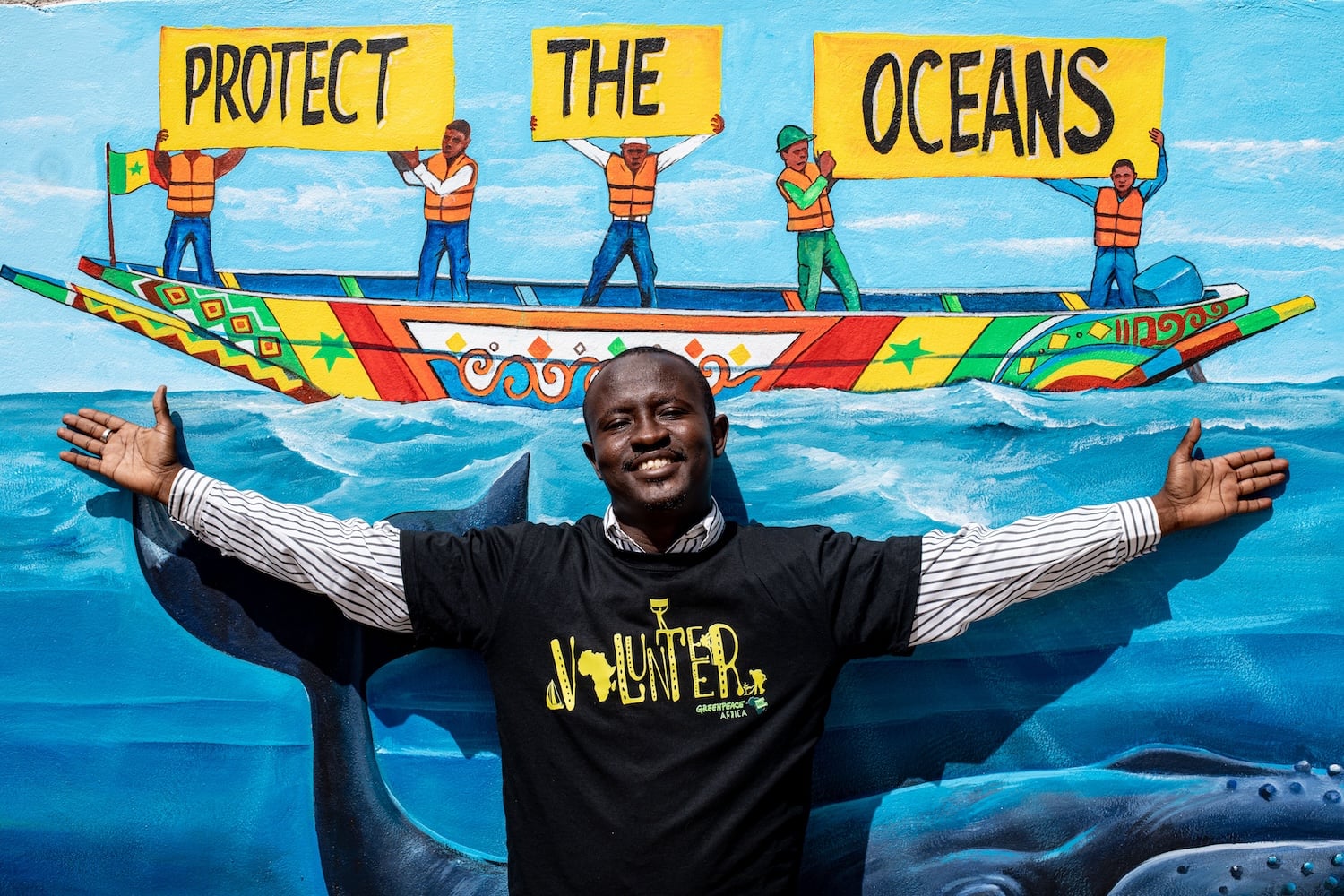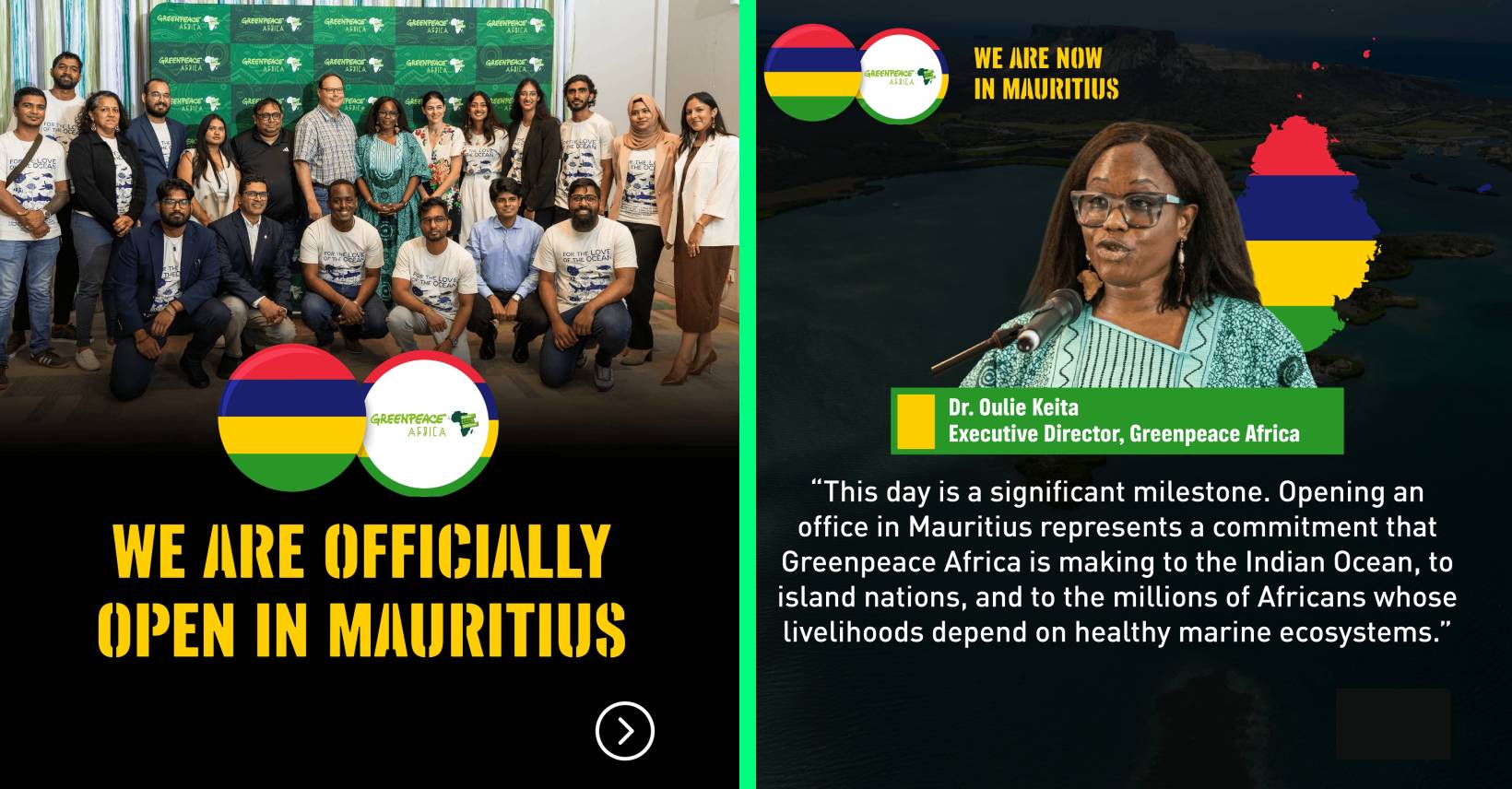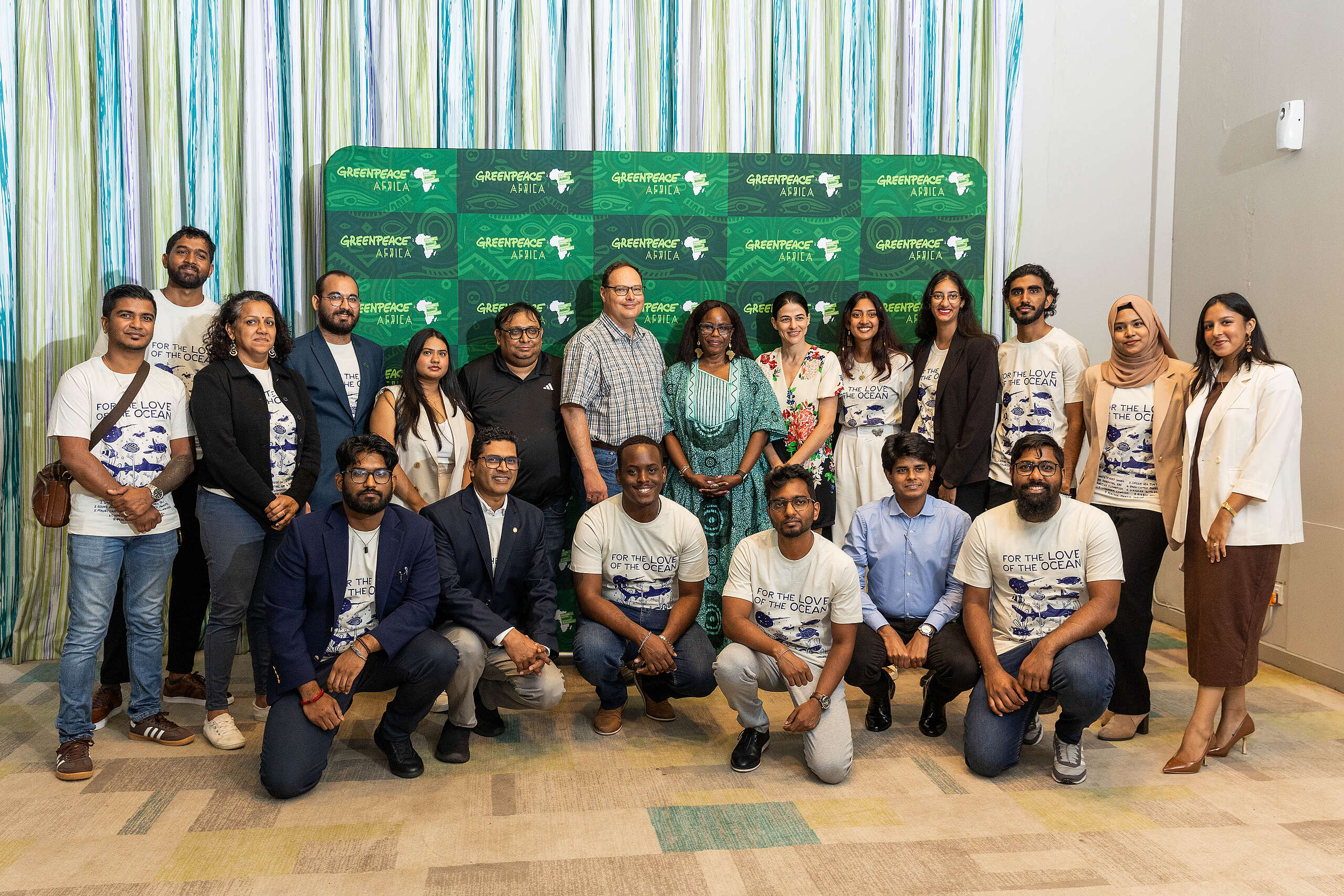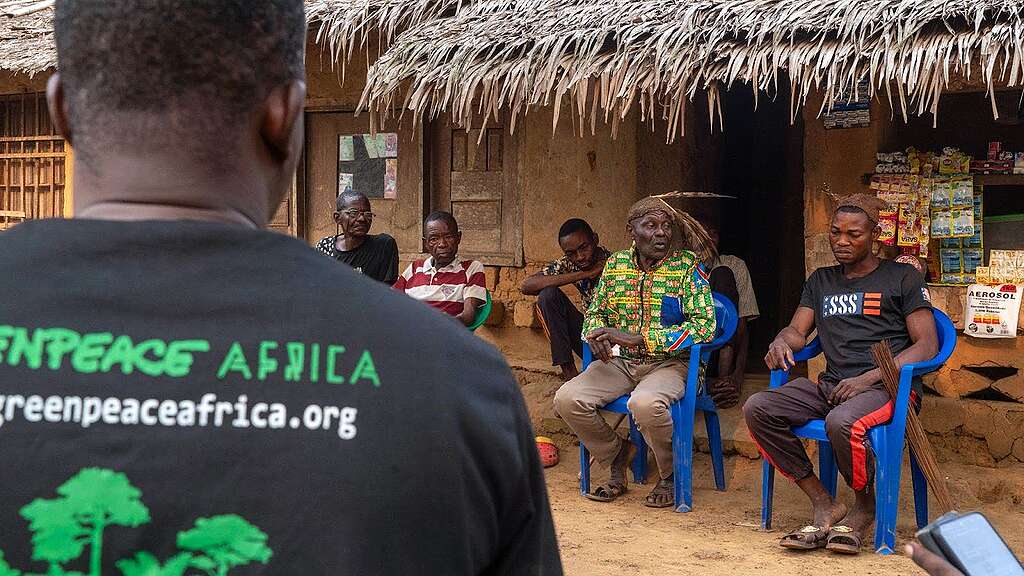
In the heart of Ecuador province, the villages of Lokolama and Penzélé share the same mission: to protect the forests that feed their families and are home to exceptional biodiversity. But for several years, tensions over land use and management threatened the cohesion between these two neighboring communities.
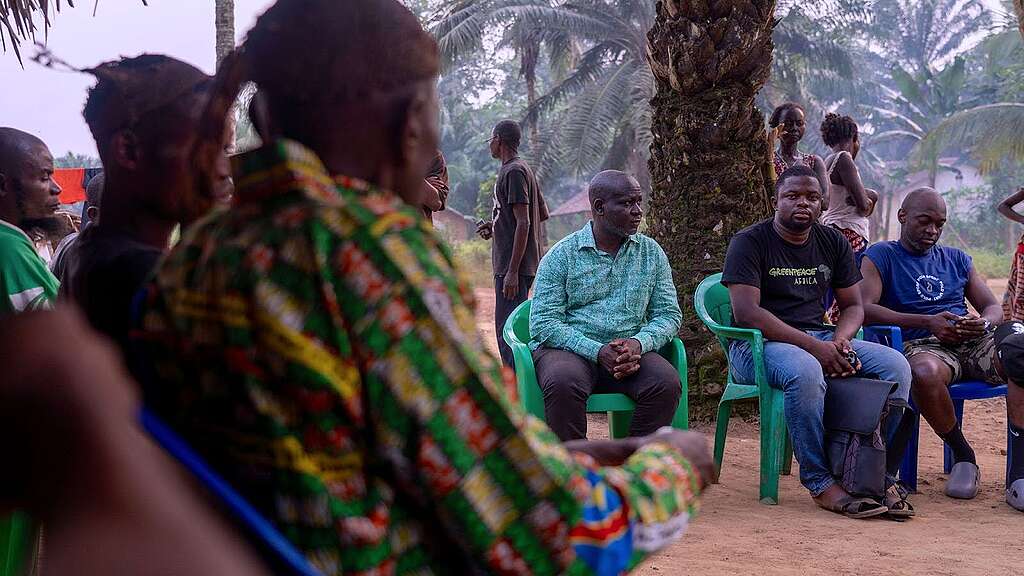
A space for dialogue and listening rediscovered
In Penzélé, the mood this morning is one of dialogue. Together with my colleagues from Greenpeace Africa, we have brought together more than 100 people from the two villages, Lokolama and Penzélé, who have long been at odds over land use. I blend into the audience and listen attentively to their concerns and frustrations, and then, little by little, their desire to move forward. Voices rise and exchange views, frank, sometimes trembling. One sentence triggers applause: “We have lost too much through division. It is together that we will protect our forests and improve our lives.”
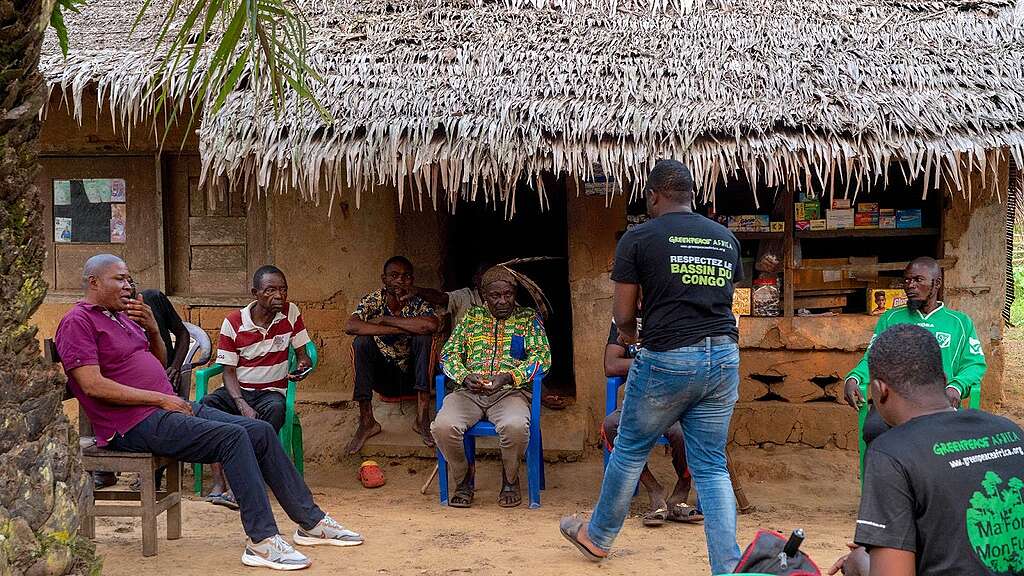
Honey as a sustainable solution
From this dialogue emerges a fiercely concrete idea: beekeeping. Honey does not destroy the forest; on the contrary, it helps to preserve the trees that allow bees to thrive. Lokolama and Penzélé place the industry at the heart of a joint action plan: an economic initiative that not only reconciles but also preserves biodiversity.
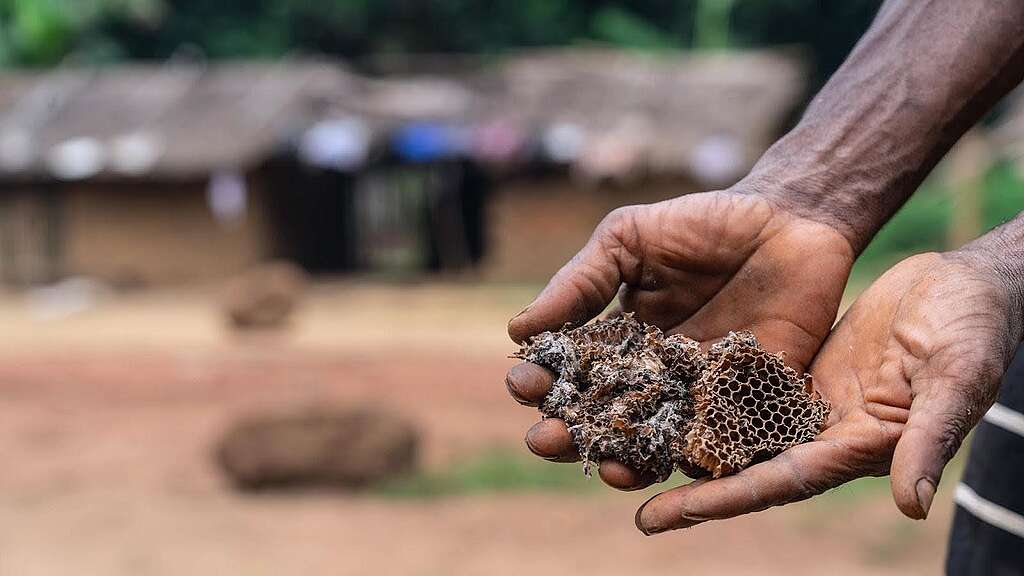
Towards a shared future
Before leaving, we set clear milestones for the period up to the end of 2025: training in beekeeping starting in September, technical support, and community monitoring. The handshakes are long; the looks, more serene. I feel like a door has just opened.
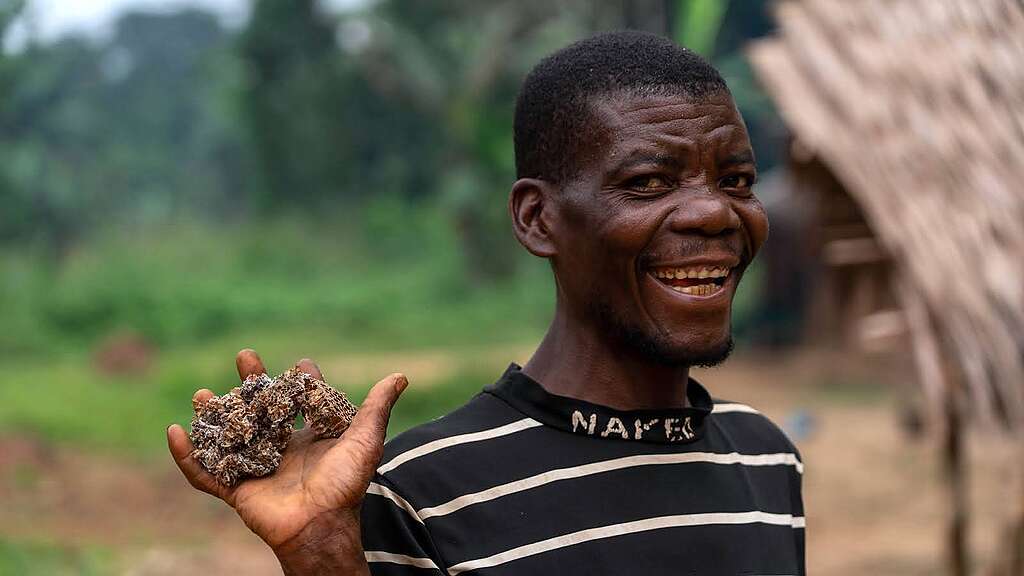
An example for the entire Congo Basin
The experience reminds us of an obvious fact: protecting the forests of the Congo Basin requires peace between communities, renewed trust, and sustainable activities that make people want to keep the forest standing. For today’s families and tomorrow’s generations.

